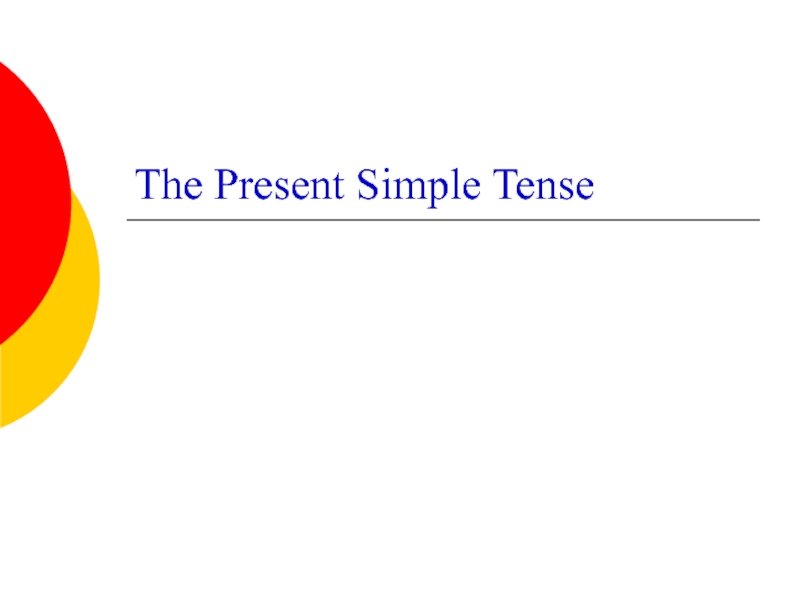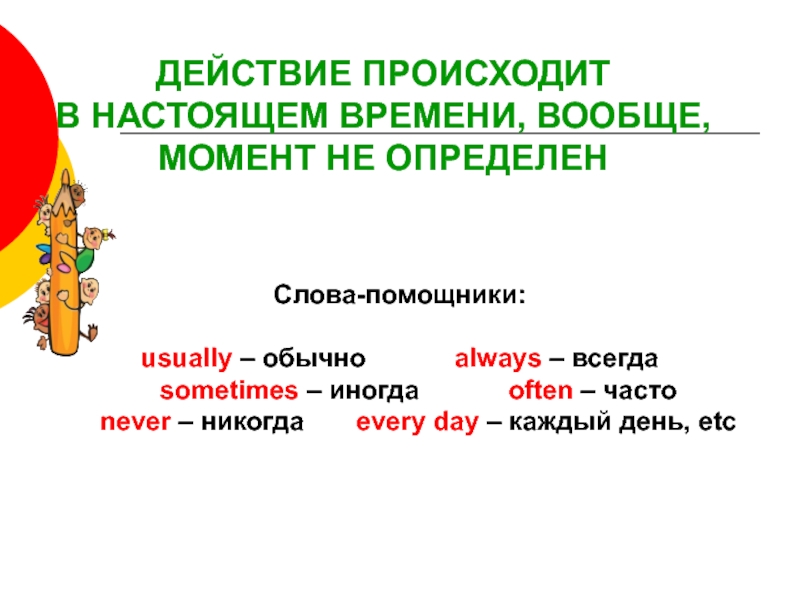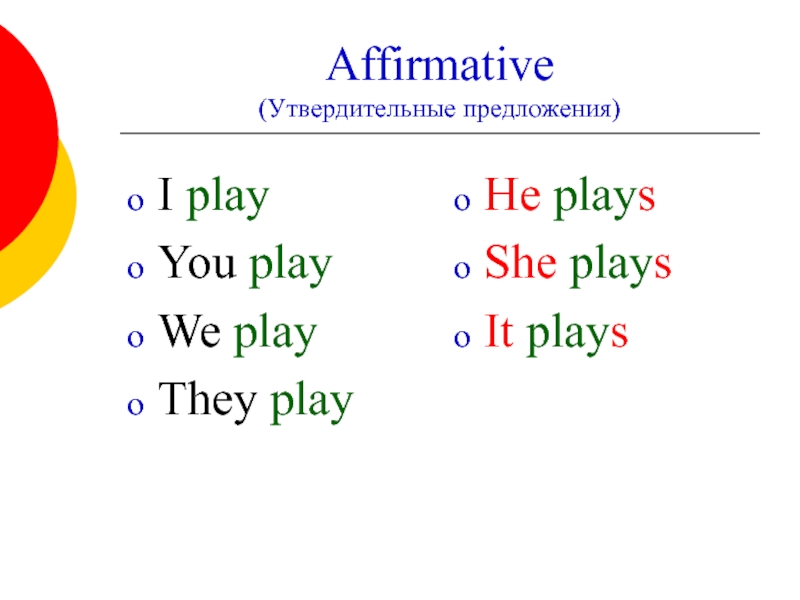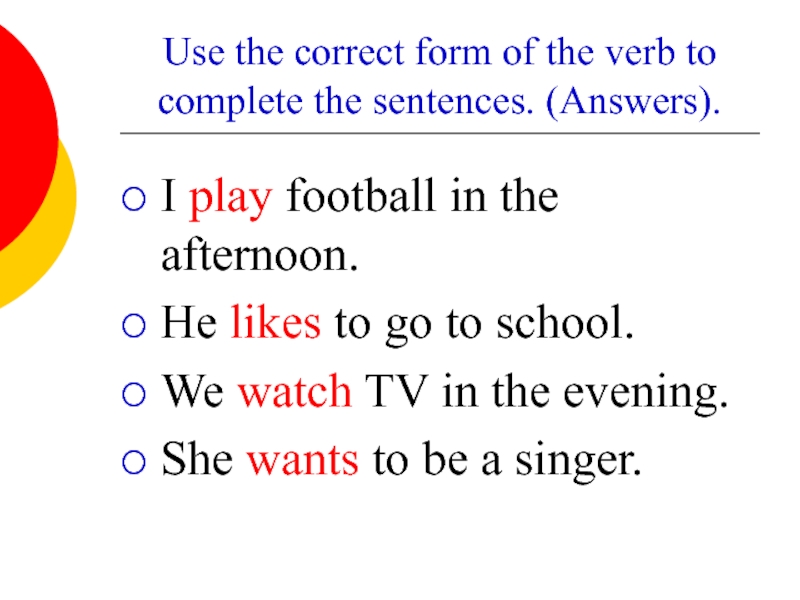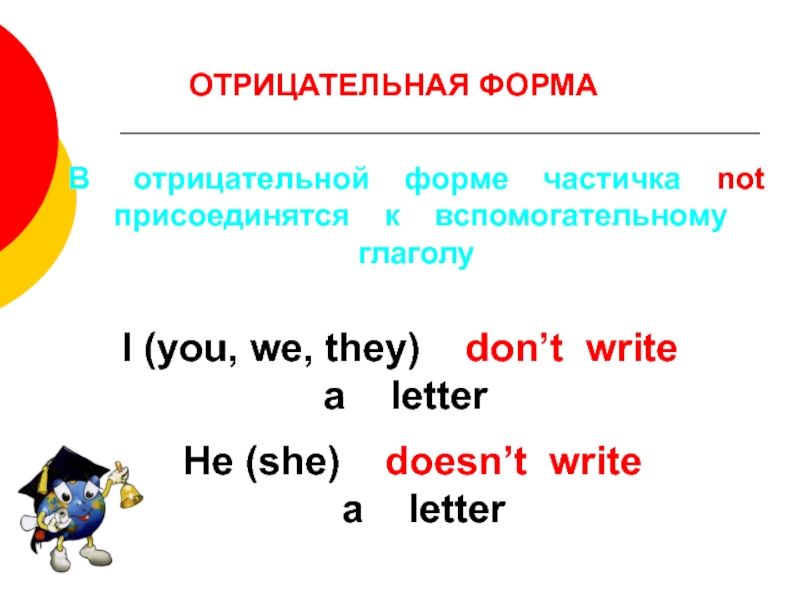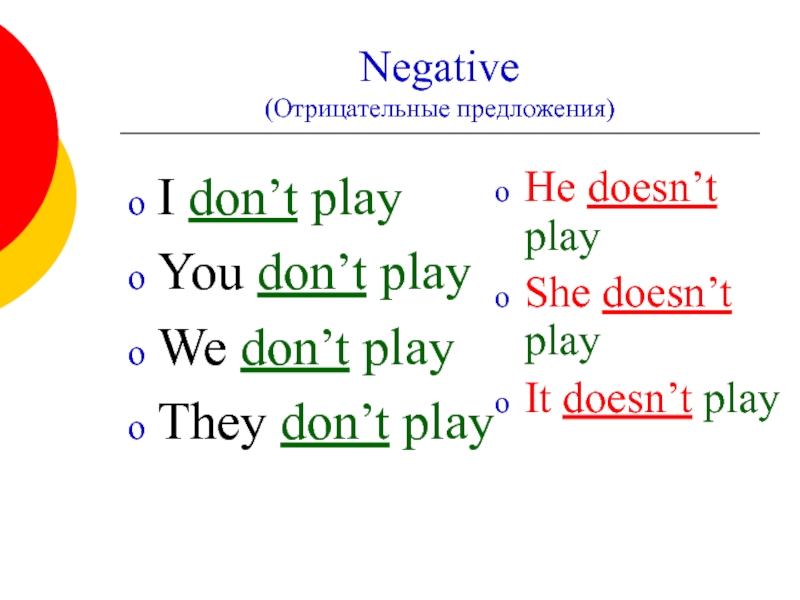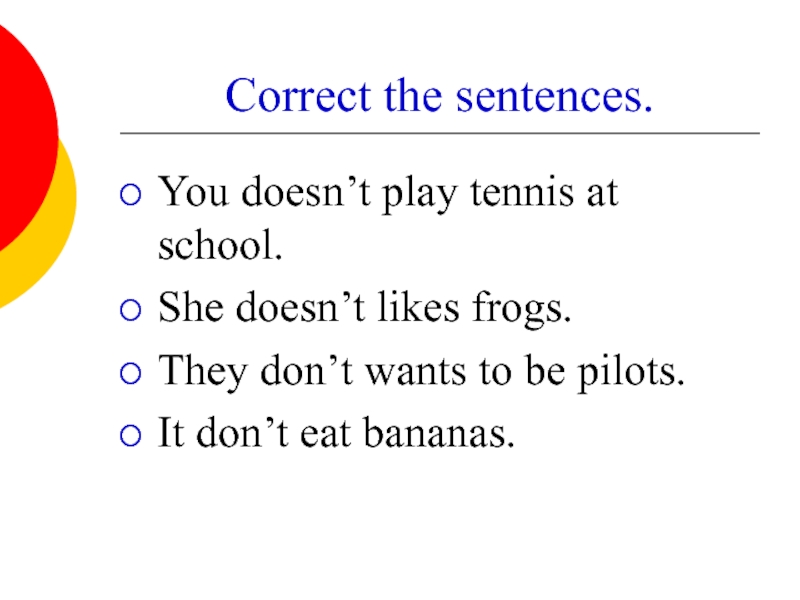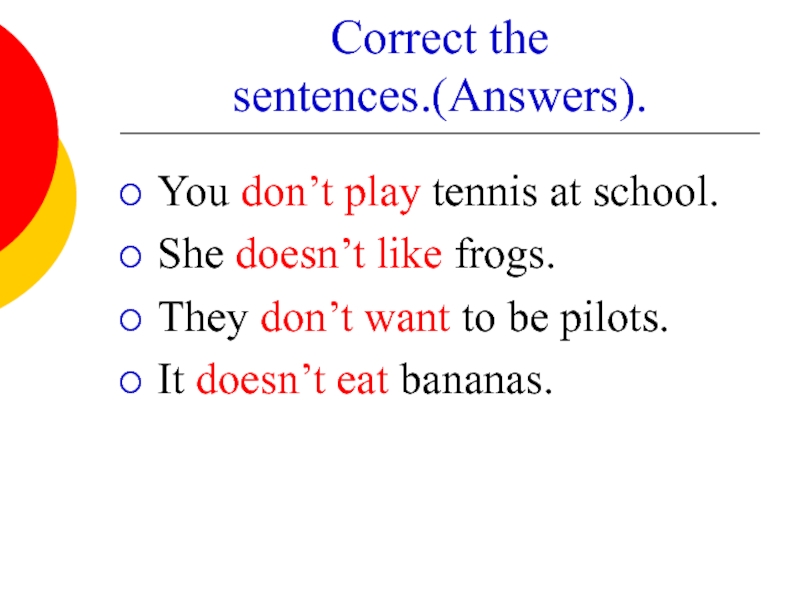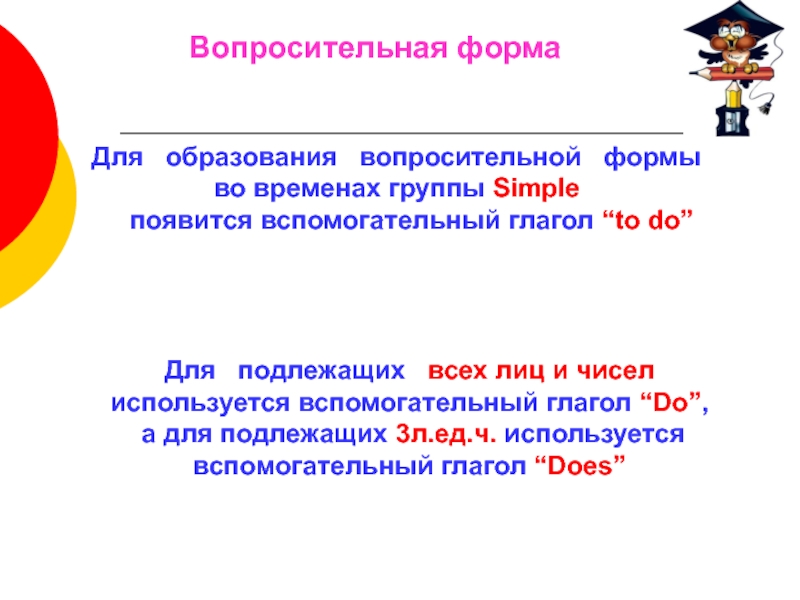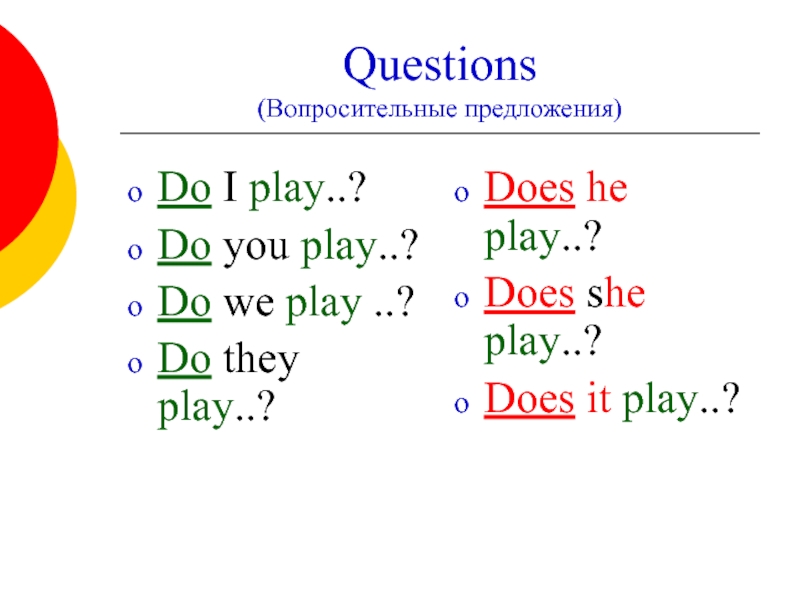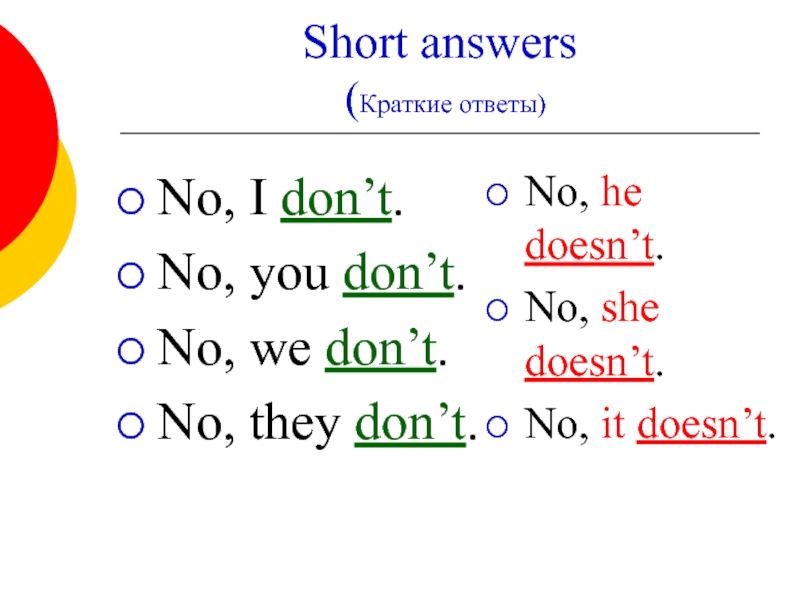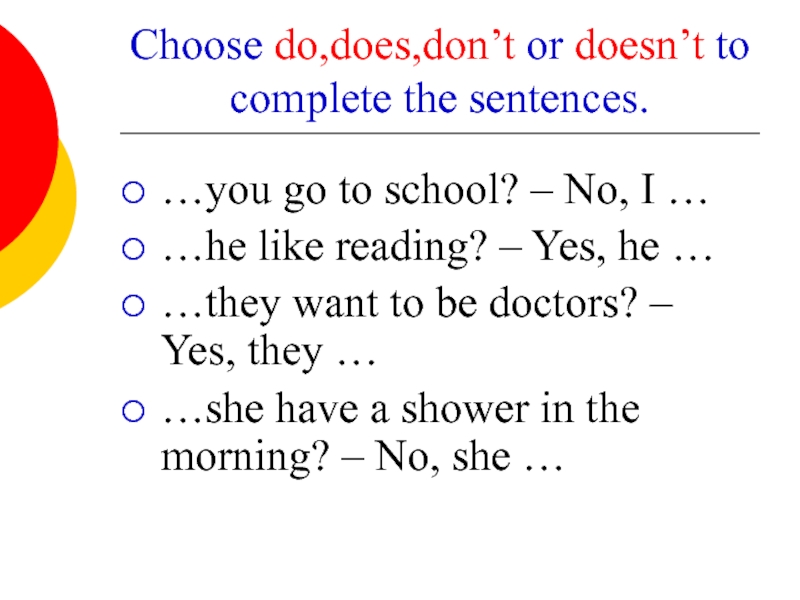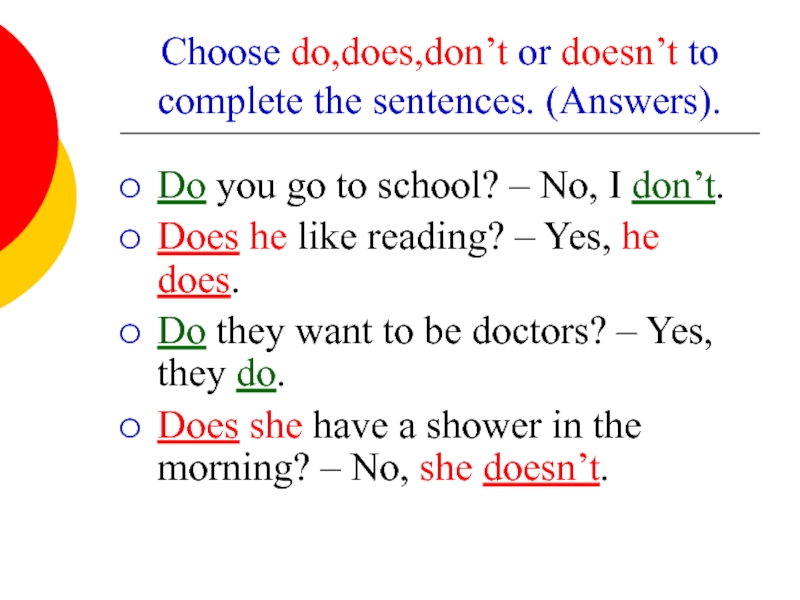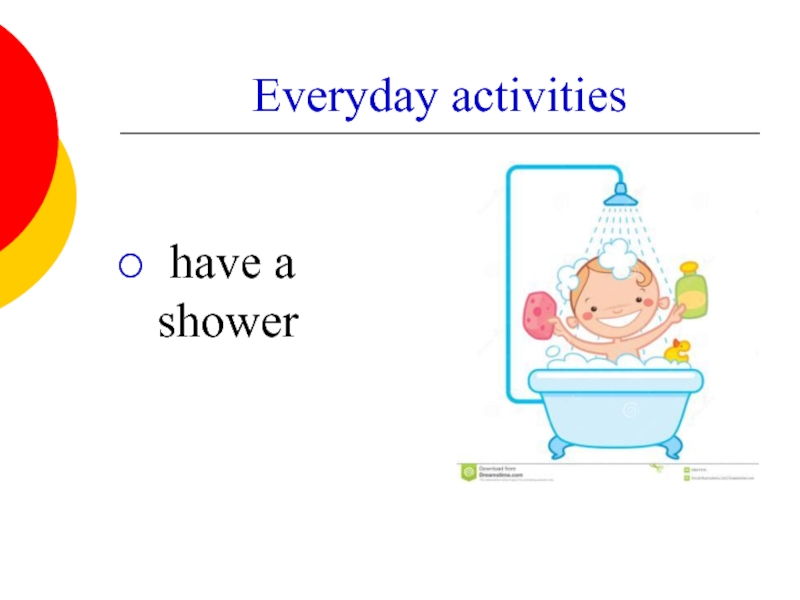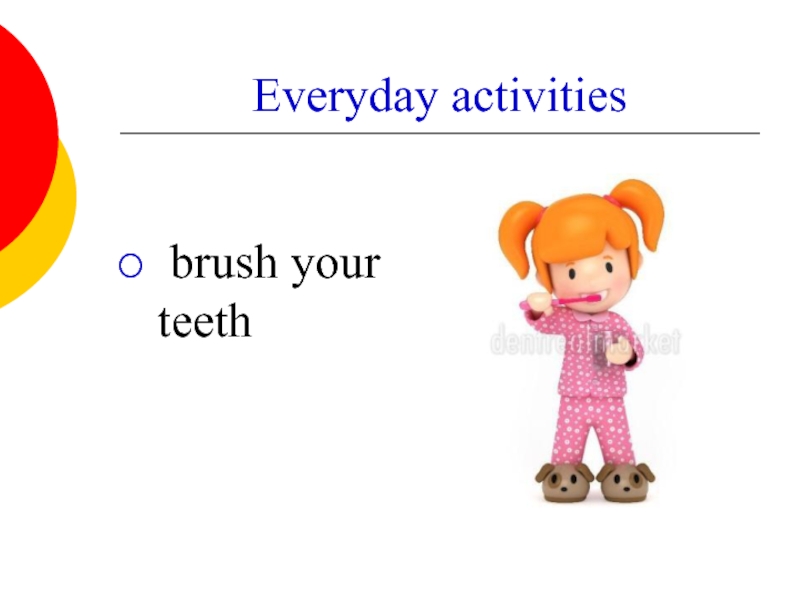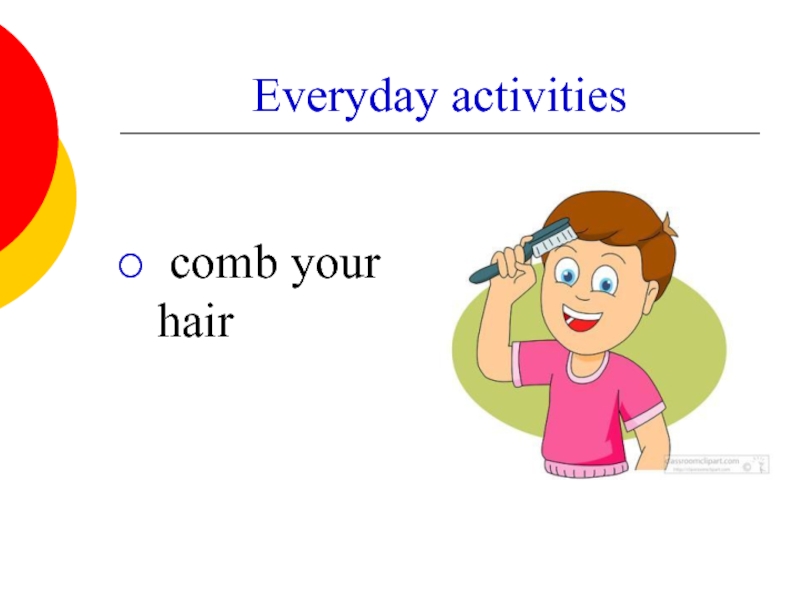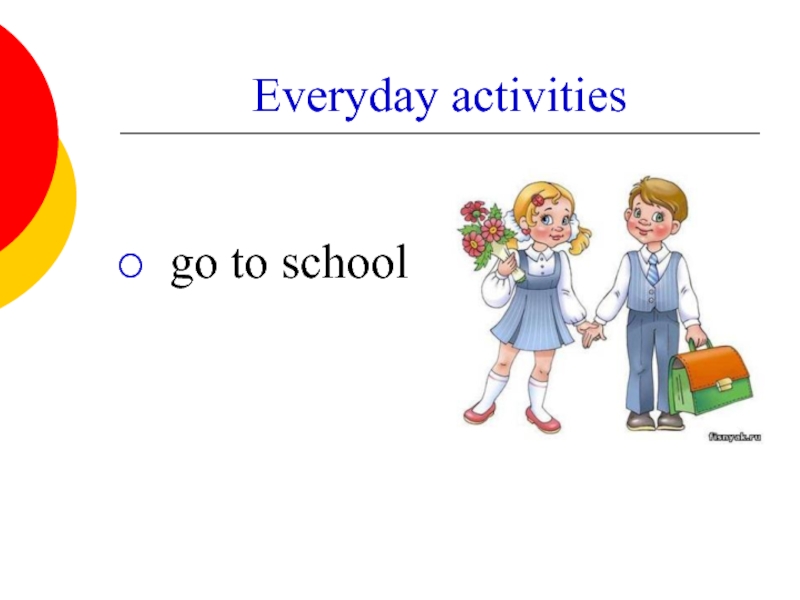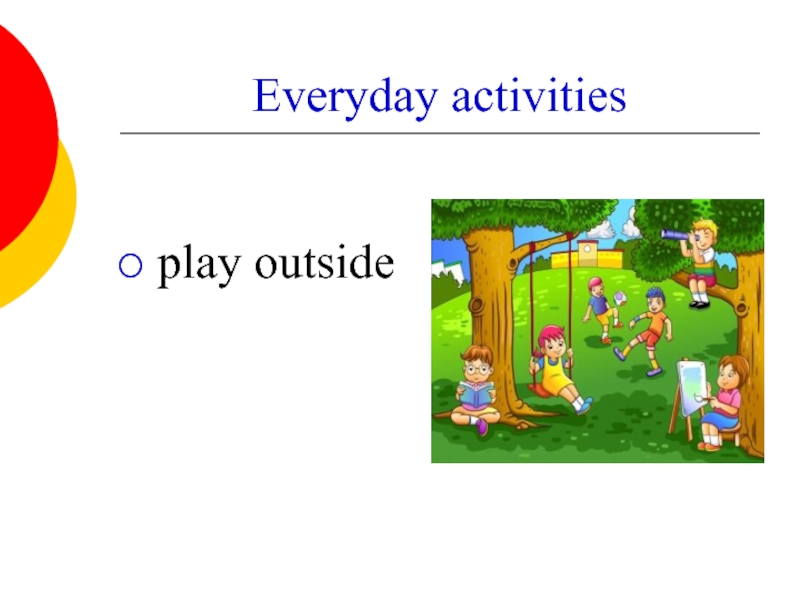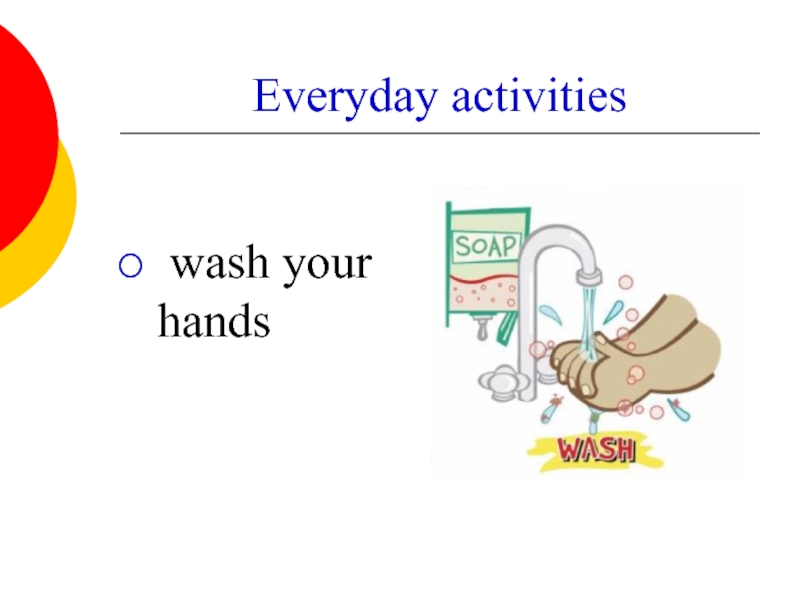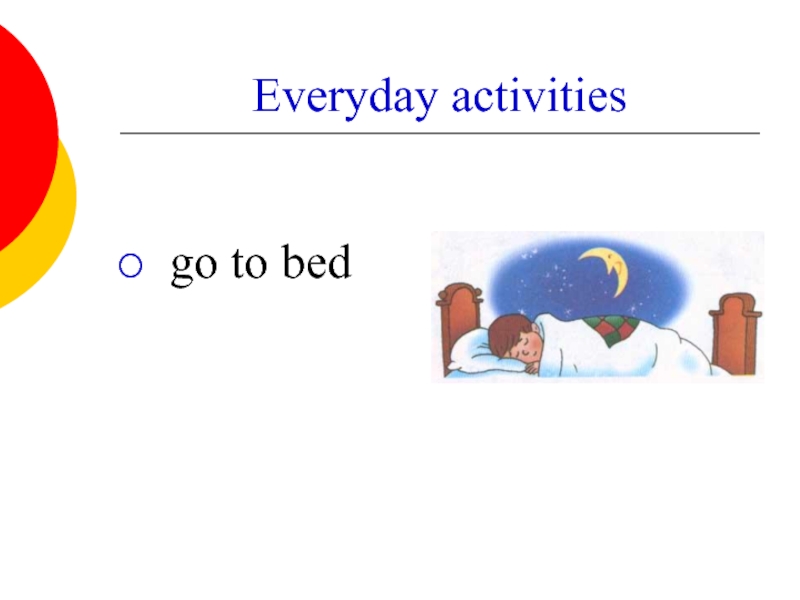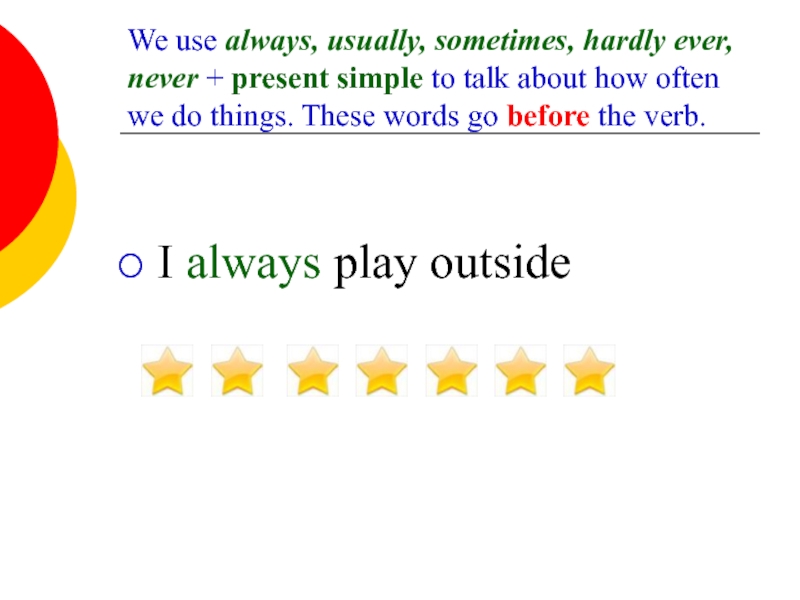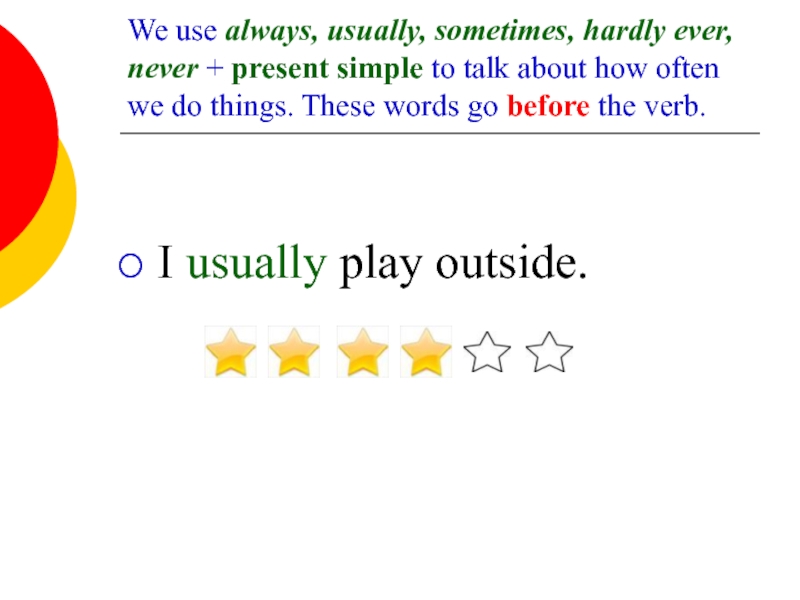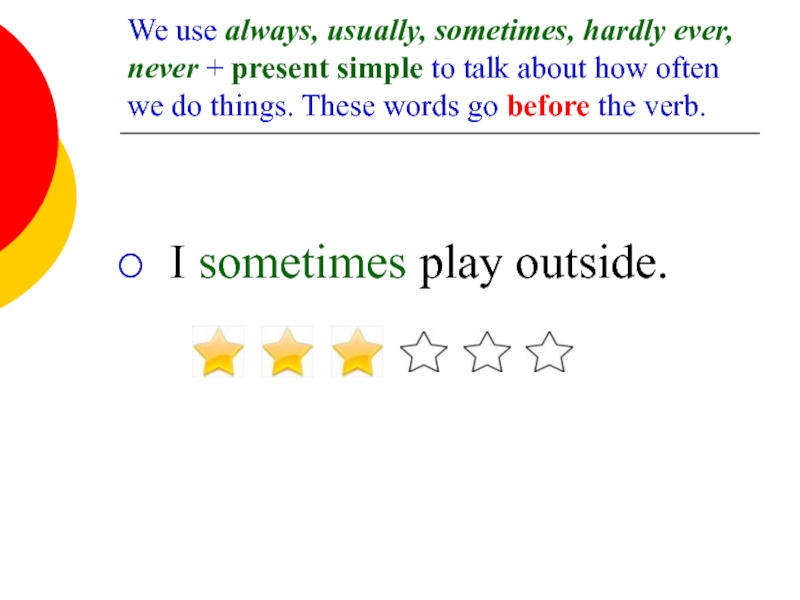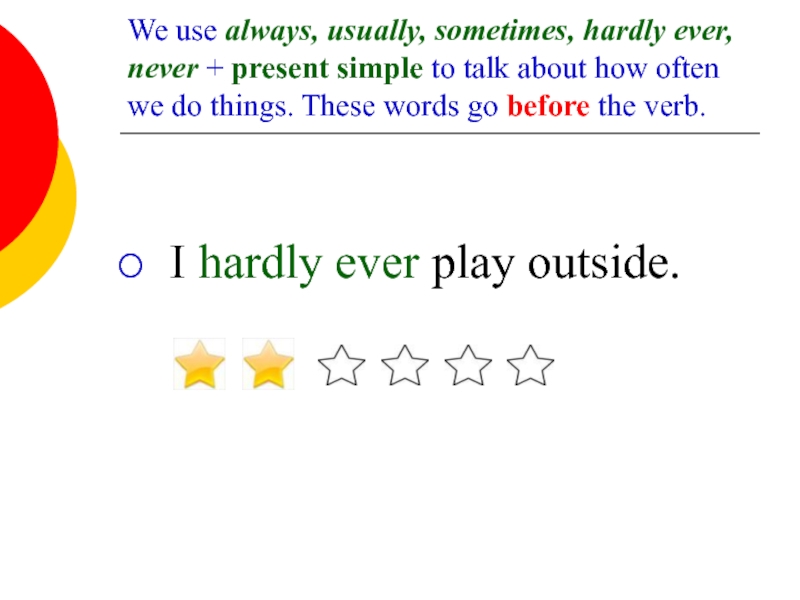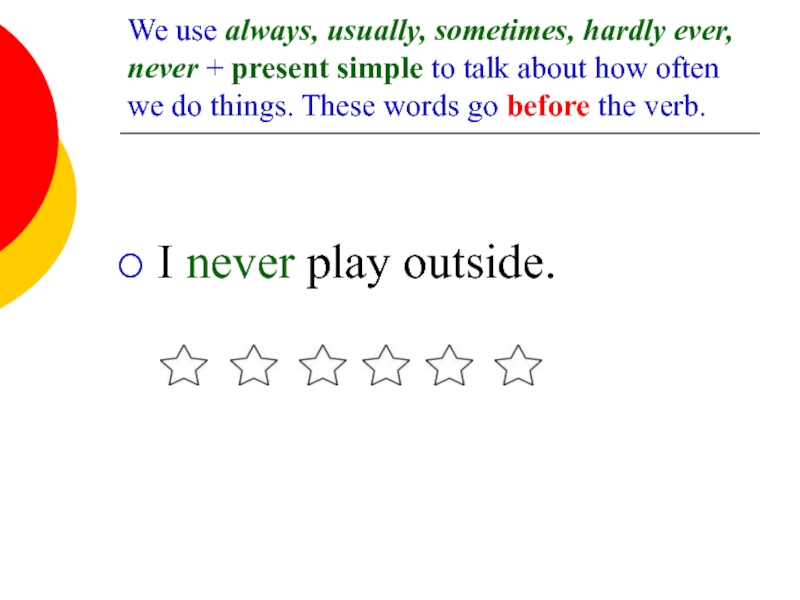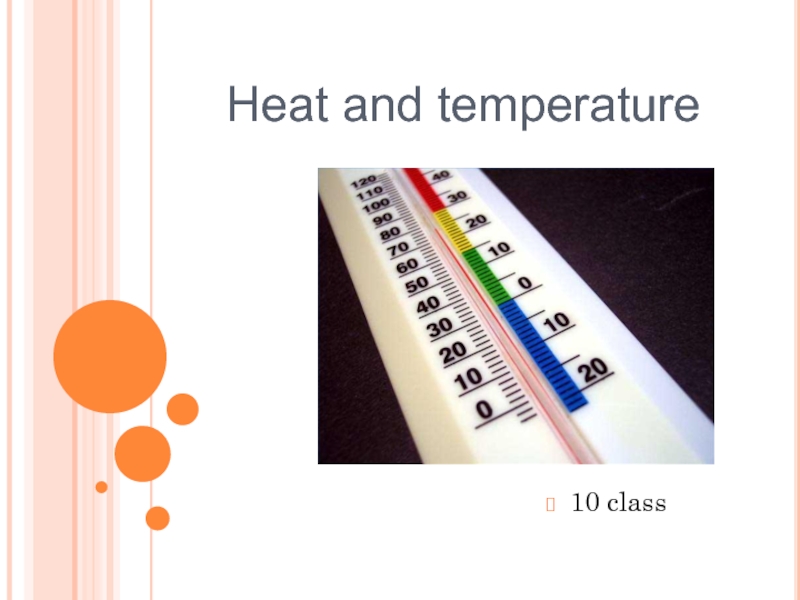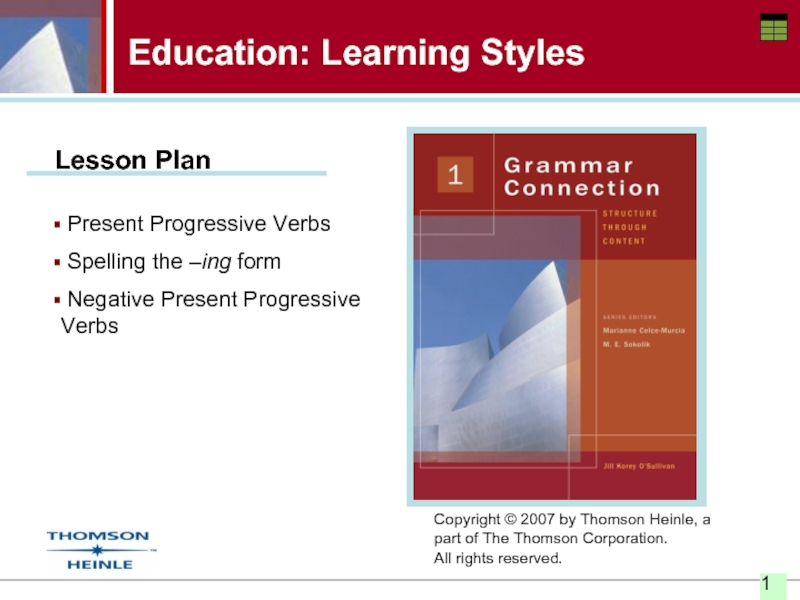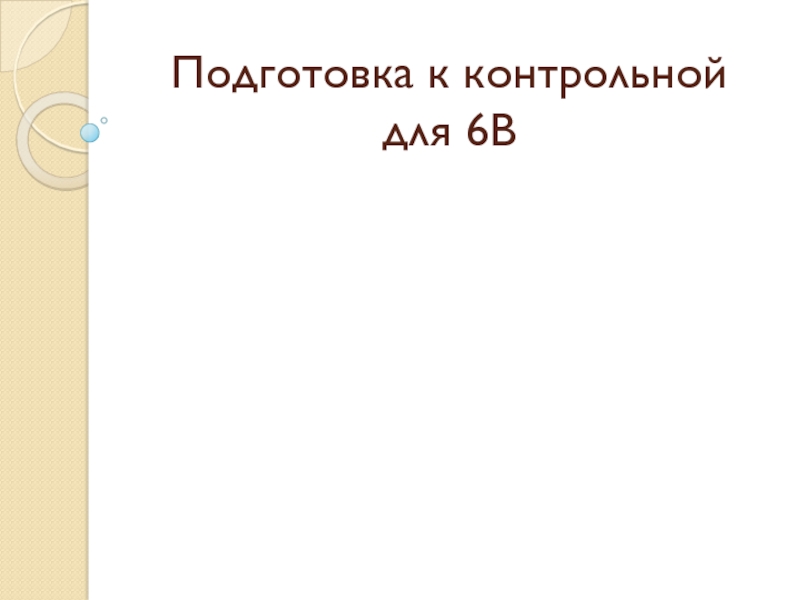- Главная
- Разное
- Дизайн
- Бизнес и предпринимательство
- Аналитика
- Образование
- Развлечения
- Красота и здоровье
- Финансы
- Государство
- Путешествия
- Спорт
- Недвижимость
- Армия
- Графика
- Культурология
- Еда и кулинария
- Лингвистика
- Английский язык
- Астрономия
- Алгебра
- Биология
- География
- Детские презентации
- Информатика
- История
- Литература
- Маркетинг
- Математика
- Медицина
- Менеджмент
- Музыка
- МХК
- Немецкий язык
- ОБЖ
- Обществознание
- Окружающий мир
- Педагогика
- Русский язык
- Технология
- Физика
- Философия
- Химия
- Шаблоны, картинки для презентаций
- Экология
- Экономика
- Юриспруденция
The Present Simple Tense презентация
Содержание
- 1. The Present Simple Tense
- 2. ДЕЙСТВИЕ ПРОИСХОДИТ В НАСТОЯЩЕМ ВРЕМЕНИ, ВООБЩЕ,
- 3. Как образуется эта форма? Утвердительная форма образуется
- 4. Affirmative (Утвердительные предложения) I play You
- 5. Use the correct form of the verb
- 6. Use the correct form of the verb
- 7. ОТРИЦАТЕЛЬНАЯ ФОРМА В отрицательной
- 8. Negative (Отрицательные предложения) I don’t play You
- 9. Correct the sentences. You doesn’t play tennis
- 10. Correct the sentences.(Answers). You don’t play tennis
- 11. Вопросительная форма Для образования вопросительной
- 12. Questions (Вопросительные предложения) Do I play..? Do
- 13. Short answers (Краткие ответы) Yes, I
- 14. Short answers (Краткие ответы) No, I
- 15. Choose do,does,don’t or doesn’t to complete the
- 16. Choose do,does,don’t or doesn’t to complete the
- 17. Everyday activities have a shower
- 18. Everyday activities brush your teeth
- 19. Everyday activities comb your hair
- 20. Everyday activities go to school
- 21. Everyday activities play outside
- 22. Everyday activities wash your hands
- 23. Everyday activities go to bed
- 24. We use always, usually, sometimes, hardly ever,
- 25. We use always, usually, sometimes, hardly ever,
- 26. We use always, usually, sometimes, hardly ever,
- 27. We use always, usually, sometimes, hardly ever,
- 28. We use always, usually, sometimes, hardly ever,
Слайд 2ДЕЙСТВИЕ ПРОИСХОДИТ
В НАСТОЯЩЕМ ВРЕМЕНИ, ВООБЩЕ,
МОМЕНТ НЕ ОПРЕДЕЛЕН
Слова-помощники:
usually – обычно
sometimes – иногда often – часто
never – никогда every day – каждый день, etc
Слайд 3Как образуется эта форма?
Утвердительная форма образуется
при помощи смыслового глагола.
Для подлежащих
но для подлежащих 3 л. ед. ч.
к глаголу добавляется окончание “s”
I (you, we, they) write a letter
He (she) writes a letter
Слайд 4Affirmative
(Утвердительные предложения)
I play
You play
We play
They play
He plays
She plays
It plays
Слайд 5Use the correct form of the verb to complete the sentences.
I
He … (like) to go to school.
We … (watch) TV in the evening.
She … (want) to be a singer.
Слайд 6Use the correct form of the verb to complete the sentences.
I play football in the afternoon.
He likes to go to school.
We watch TV in the evening.
She wants to be a singer.
Слайд 7ОТРИЦАТЕЛЬНАЯ ФОРМА
В отрицательной форме частичка not
I (you, we, they) don’t write
a letter
He (she) doesn’t write
a letter
Слайд 8Negative
(Отрицательные предложения)
I don’t play
You don’t play
We don’t play
They don’t play
He doesn’t
She doesn’t play
It doesn’t play
Слайд 9Correct the sentences.
You doesn’t play tennis at school.
She doesn’t likes frogs.
They
It don’t eat bananas.
Слайд 10Correct the sentences.(Answers).
You don’t play tennis at school.
She doesn’t like frogs.
They
It doesn’t eat bananas.
Слайд 11Вопросительная форма
Для образования вопросительной формы
во временах группы
появится вспомогательный глагол “to do”
Для подлежащих всех лиц и чисел используется вспомогательный глагол “Do”,
а для подлежащих 3л.ед.ч. используется вспомогательный глагол “Does”
Слайд 12Questions
(Вопросительные предложения)
Do I play..?
Do you play..?
Do we play ..?
Do they play..?
Does
Does she play..?
Does it play..?
Слайд 13Short answers
(Краткие ответы)
Yes, I do.
Yes, you do.
Yes, we do.
Yes, they
Yes, he does.
Yes, she does.
Yes, it does.
Слайд 14Short answers
(Краткие ответы)
No, I don’t.
No, you don’t.
No, we don’t.
No, they
No, he doesn’t.
No, she doesn’t.
No, it doesn’t.
Слайд 15Choose do,does,don’t or doesn’t to complete the sentences.
…you go to school?
…he like reading? – Yes, he …
…they want to be doctors? – Yes, they …
…she have a shower in the morning? – No, she …
Слайд 16Choose do,does,don’t or doesn’t to complete the sentences. (Answers).
Do you go
Does he like reading? – Yes, he does.
Do they want to be doctors? – Yes, they do.
Does she have a shower in the morning? – No, she doesn’t.
Слайд 24We use always, usually, sometimes, hardly ever, never + present simple
I always play outside
Слайд 25We use always, usually, sometimes, hardly ever, never + present simple
I usually play outside.
Слайд 26We use always, usually, sometimes, hardly ever, never + present simple
I sometimes play outside.
Слайд 27We use always, usually, sometimes, hardly ever, never + present simple
I hardly ever play outside.
Слайд 28We use always, usually, sometimes, hardly ever, never + present simple
I never play outside.
